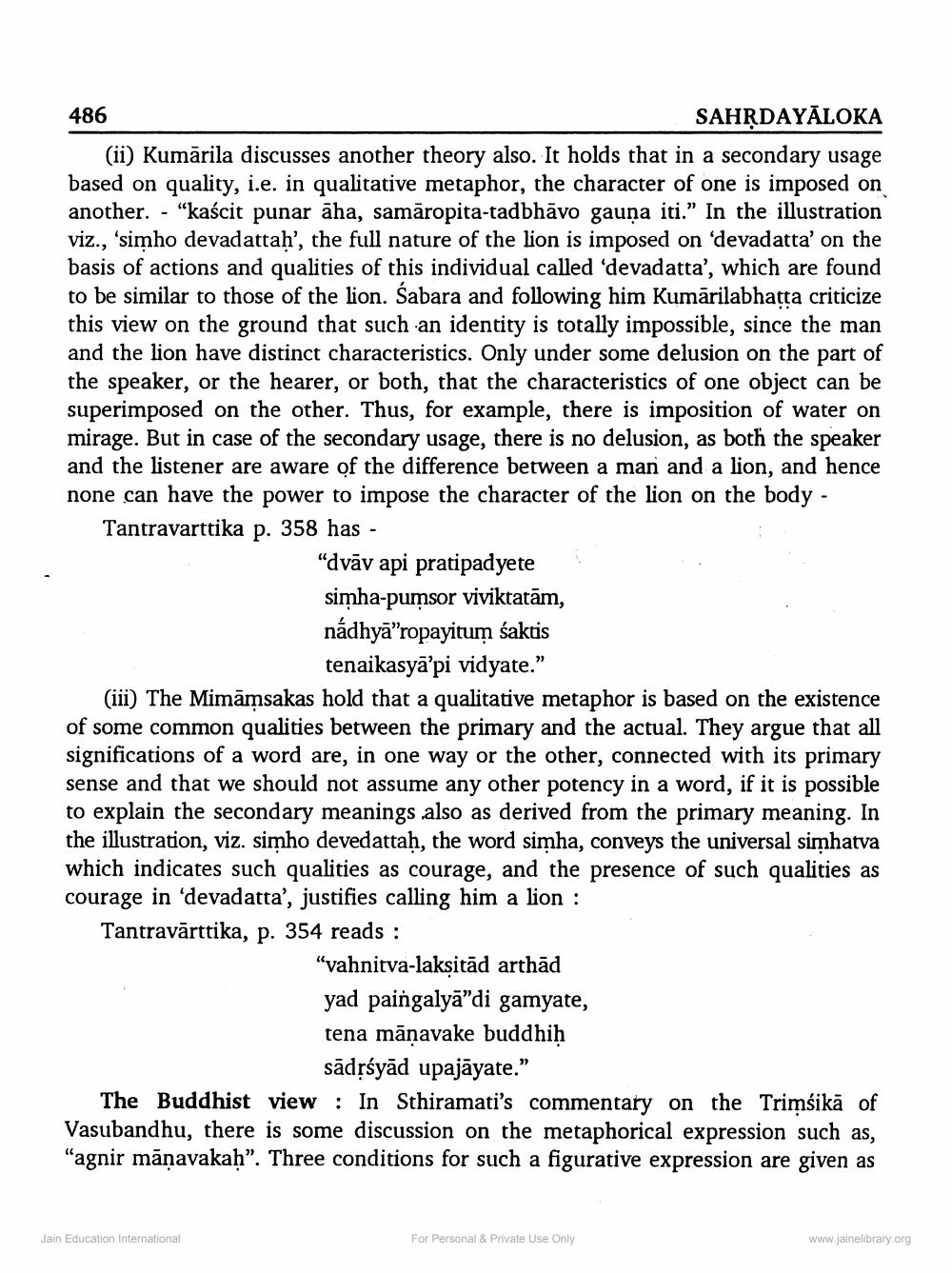________________
486
SAHRDAYĀLOKA (ii) Kumārila discusses another theory also. It holds that in a secondary usage based on quality, i.e. in qualitative metaphor, the character of one is imposed on another. - "kaścit punar aha, samāropita-tadbhāvo gauna iti." In the illustration viz., 'simho devadattah', the full nature of the lion is imposed on devadatta' on the basis of actions and qualities of this individual called 'devadatta', which are found to be similar to those of the lion. Sabara and following him Kumārilabhatta criticize this view on the ground that such an identity is totally impossible, since the man and the lion have distinct characteristics. Only under some delusion on the part of the speaker, or the hearer, or both, that the characteristics of one object can be superimposed on the other. Thus, for example, there is imposition of water on mirage. But in case of the secondary usage, there is no delusion, as both the speaker and the listener are aware of the difference between a man and a lion, and hence none can have the power to impose the character of the lion on the body - Tantravarttika p. 358 has
"dvāv api pratipadyete simha-pumsor viviktatām, nádhyā”ropayitum śaktis
tenaikasyā’pi vidyate." (iii) The Mimāmsakas hold that a qualitative metaphor is based on the existence of some common qualities between the primary and the actual. They argue that all significations of a word are, in one way or the other, connected with its primary sense and that we should not assume any other potency in a word, if it is possible to explain the secondary meanings also as derived from the primary meaning. In the illustration, viz. simho devedattah, the word simha, conveys the universal simhatva which indicates such qualities as courage, and the presence of such qualities as courage in 'devadatta', justifies calling him a lion : Tantravārttika, p. 354 reads :
"vahnitva-lakṣitād arthād yad paingalyā”di gamyate, tena māņavake buddhiḥ
sādņśyād upajāyate." The Buddhist view : In Sthiramati's commentary on the Trimśikā of Vasubandhu, there is some discussion on the metaphorical expression such as, "agnir māņavakah”. Three conditions for such a figurative expression are given as
Jain Education International
For Personal & Private Use Only
www.jainelibrary.org




